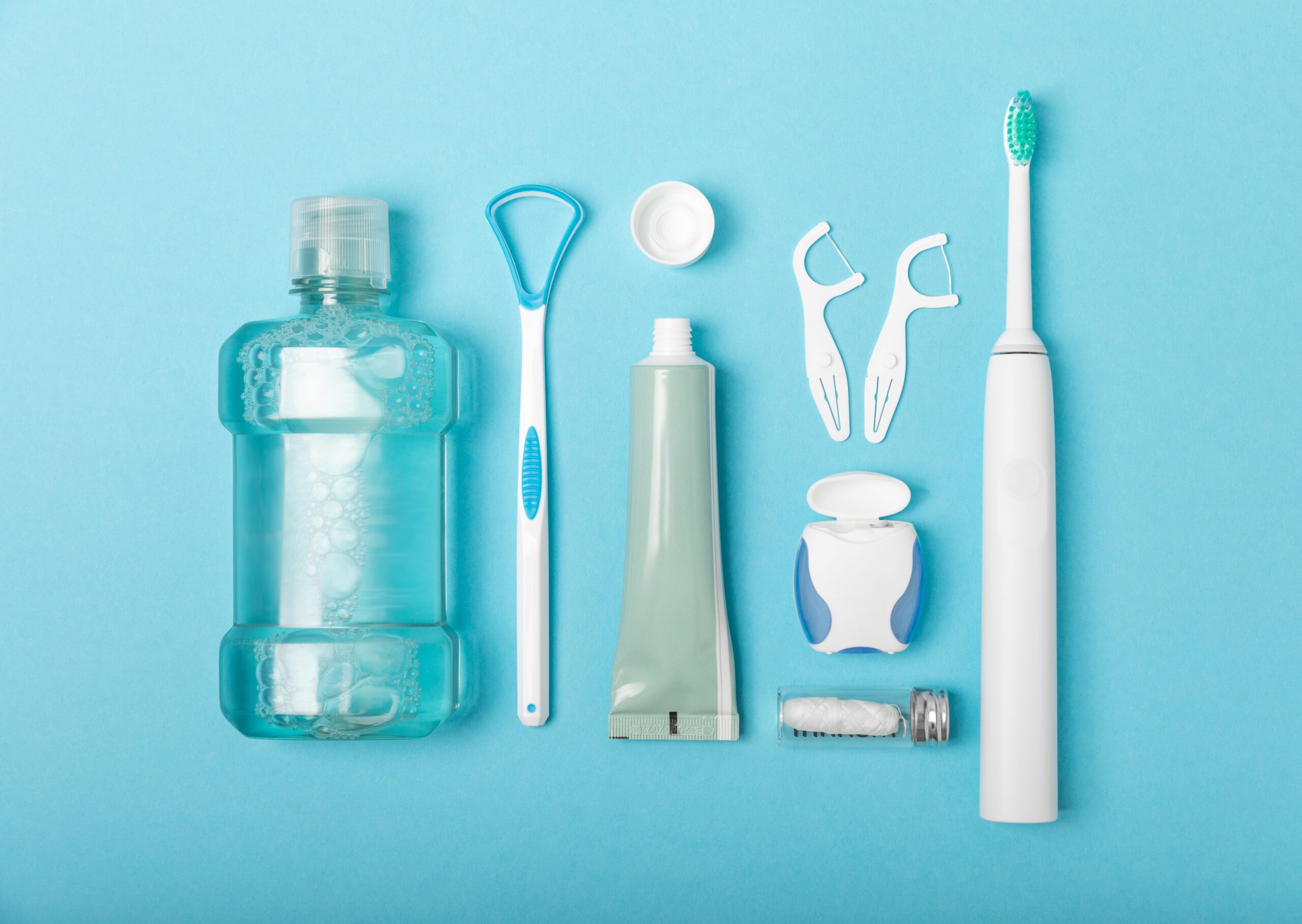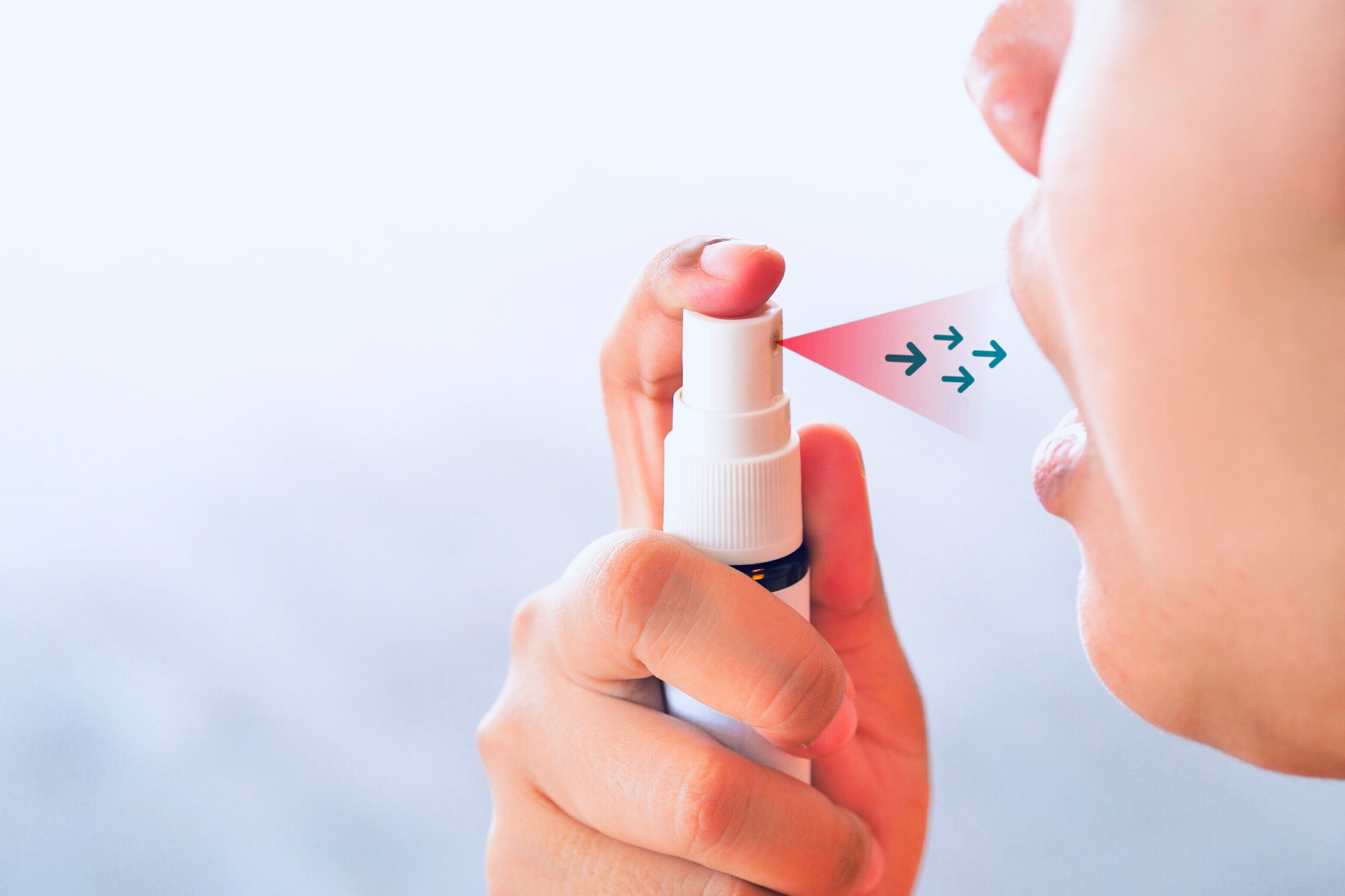In the intricate realm of personal hygiene, the significance of oral care cannot be overstated. Our journey through this comprehensive guide begins with an exploration of various oral care products,(such as toothpaste, mouthwash and so on), their types, and the judicious usage that ensures an optimal oral health regimen.
Toothpaste
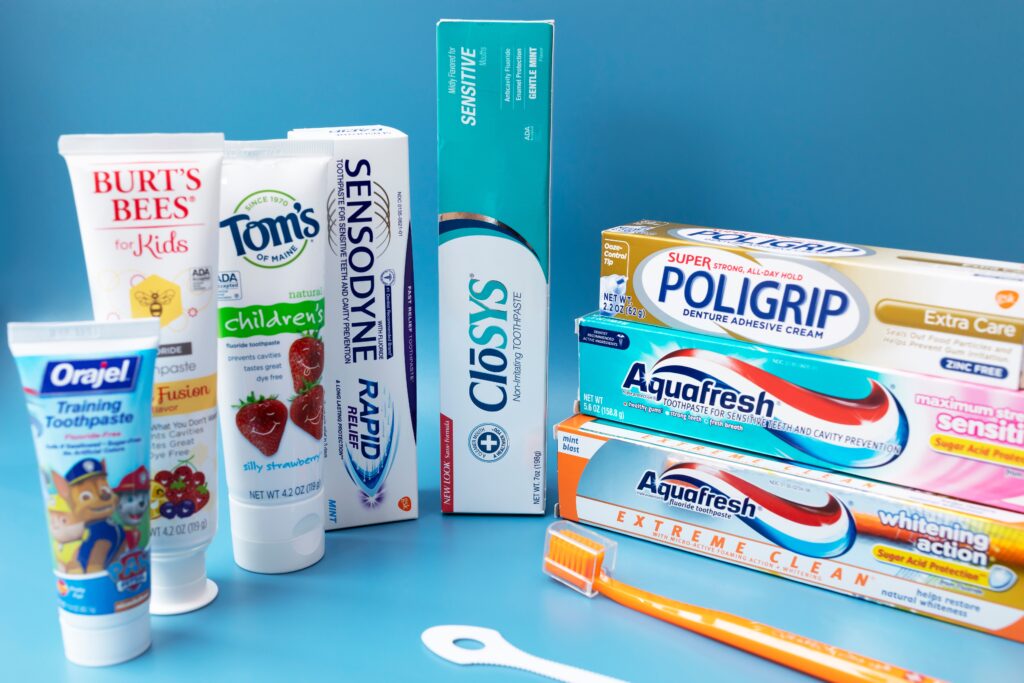
1. Fluoride Toothpaste
Benefits: Fluoride toothpaste stands as a stalwart defender in the dental arsenal, fortifying enamel against the relentless assault of acids. Its mineralizing prowess not only strengthens teeth but also acts as a sentinel against cavities, forming a waterproof shield.
Recommended Usage: For optimal safeguarding, a mere pea-sized amount of fluoride toothpaste suffices. Employ a gentle circular motion during brushing, ensuring every nook and cranny receives the protective embrace of fluoride.
2. Tartar Control Toothpaste
Benefits: Tartar control toothpaste, armed with pyrophosphates and zinc citrate, emerges as the guardian against the calcified buildup of plaque. Its preventive nature disrupts the formation of tartar, averting potential dental maladies.
Recommended Usage: In the battle against tartar, consistency is key. Employ this variant twice a day, navigating your toothbrush across all surfaces, and witness the impregnable fortress against plaque buildup.
3. Whitening Toothpaste
Benefits: Whitening toothpaste, the alchemist in the oral care pantheon, employs abrasives or enzymes to banish surface stains. Beyond aesthetics, it fosters a luminous smile that radiates confidence.
Recommended Usage: Integrate whitening toothpaste into your routine with moderation. Two minutes of gentle brushing, twice a day, unlocks the transformative potential without compromising enamel integrity.
4. Sensitivity Toothpaste
Benefits: For those plagued by dental hypersensitivity, sensitivity toothpaste assumes the role of a soothing balm. Potassium nitrate and strontium chloride form a protective barrier, alleviating the discomfort associated with sensitive teeth.
Recommended Usage: Incorporate sensitive toothpaste into your regimen, brushing gently yet consistently. Optimal results unfold when used as part of a regular oral care routine.
Toothbrushes
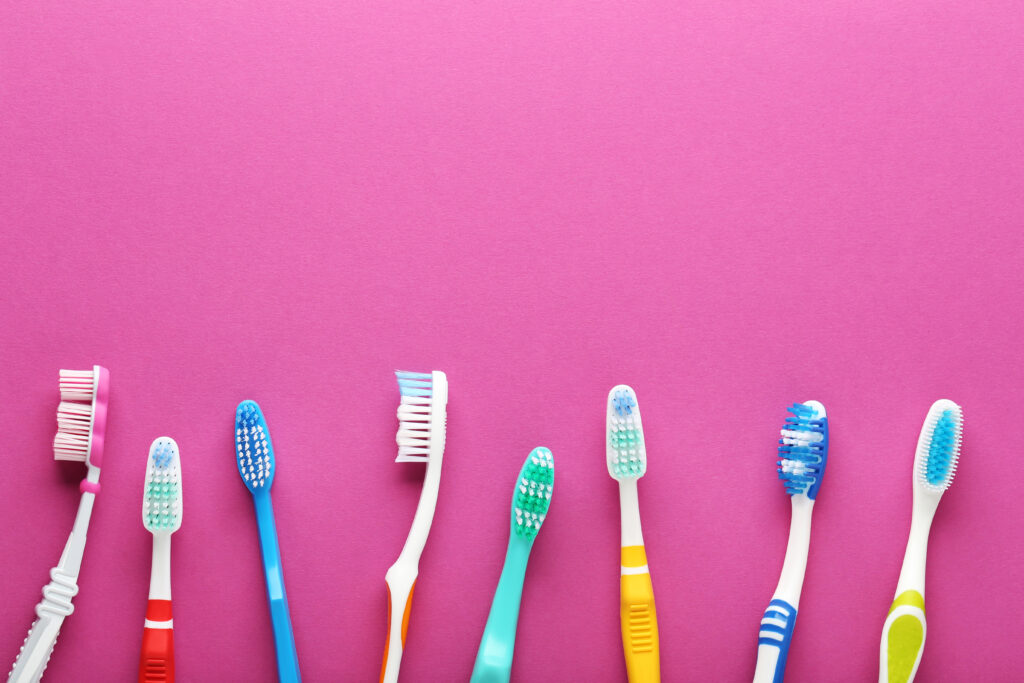
1. Manual Toothbrushes
| Types | Benefits |
|---|---|
| Soft Bristles | – Reserved for robust enamel and experienced brushers – Deep cleaning, removing tenacious debris – Caution is required to prevent inadvertent damage to gums and enamel |
| Medium Bristles | – Balanced efficacy and gentleness – Efficient plaque removal without compromising tooth enamel |
| Hard Bristles | – Reserved for robust enamel and experienced brushers – Deep cleaning, removing tenacious debris – Caution required to prevent inadvertent damage to gums and enamel |
| Traditional Toothbrushes | – Straightforward design with a straight neck and bristle arrangement – Time-tested and reliable, catering to purists in oral care |
| Angle Neck Toothbrushes | – Innovates on tradition with a slanted head – Facilitates access to challenging areas for a comprehensive clean with every stroke |
2. Electric Toothbrushes
Benefits: Electric toothbrushes excel at efficiently removing plaque, surpassing manual brushes and reducing the risk of cavities. With built-in timers, they ensure a thorough cleanse by guiding users to brush for the recommended two-minute duration. Additionally, these toothbrushes offer various modes for individual needs, including sensitive teeth, gum care, and intensive cleaning. Electric toothbrushes provide efficient and customizable solutions for oral hygiene.
Choosing Tips: When choosing a toothbrush, there are a few considerations to keep in mind. Rechargeable models are ideal for those who prioritize eco-friendliness, while battery-powered options offer convenience for those always on the go. The decision between oscillating-rotating and sonic toothbrushes depends on personal preference. Oscillating-rotating models mimic manual strokes, while sonic toothbrushes use rapid vibrations for a dynamic clean. Ultimately, the choice should match individual needs and preferences.
Mouthwash

1. Antiseptic Mouthwash
Benefits: Antiseptic mouthwash is a potent defender, battling oral bacteria with strong antimicrobial agents. Beyond its antibacterial power, it leaves a lasting burst of minty freshness, ensuring not only a clean breath but a revitalizing experience.
Tips for Using: Incorporate antiseptic mouthwash into your oral care finale. A swish and gargle, post-brushing, for about 30 seconds, elevate your routine to the pinnacle of freshness.
2. Fluoride Mouthwash
Benefits: Fluoride mouthwash serves as a silent ally in promoting overall dental health by both strengthening tooth enamel and preventing tooth decay. Its fortifying properties reinforce the tooth structure, making it resilient against acid attacks and forming an impermeable shield that extends beyond cavities, effectively halting the relentless march of tooth decay.
Tips for Using: Integrate fluoride mouthwash into your regimen judiciously. A brief swish and gargle post-brushing suffices, fortifying your teeth against potential threats.
3. Alcohol-Free Mouthwash
Benefits: The oral care product boasts a gentle solution tailored for sensitive mouths, featuring an alcohol-free formulation that guarantees a refreshing experience without the unpleasant aftermath of dryness. This non-drying formula actively prevents the desiccation of oral tissues, preserving moisture and ensuring comfort both during and after usage.
Tips for Using: Liberate your oral care routine from the shackles of dryness. Swirl and gargle alcohol-free mouthwash for around 30 seconds, relishing the gentleness it imparts.
Dental Floss
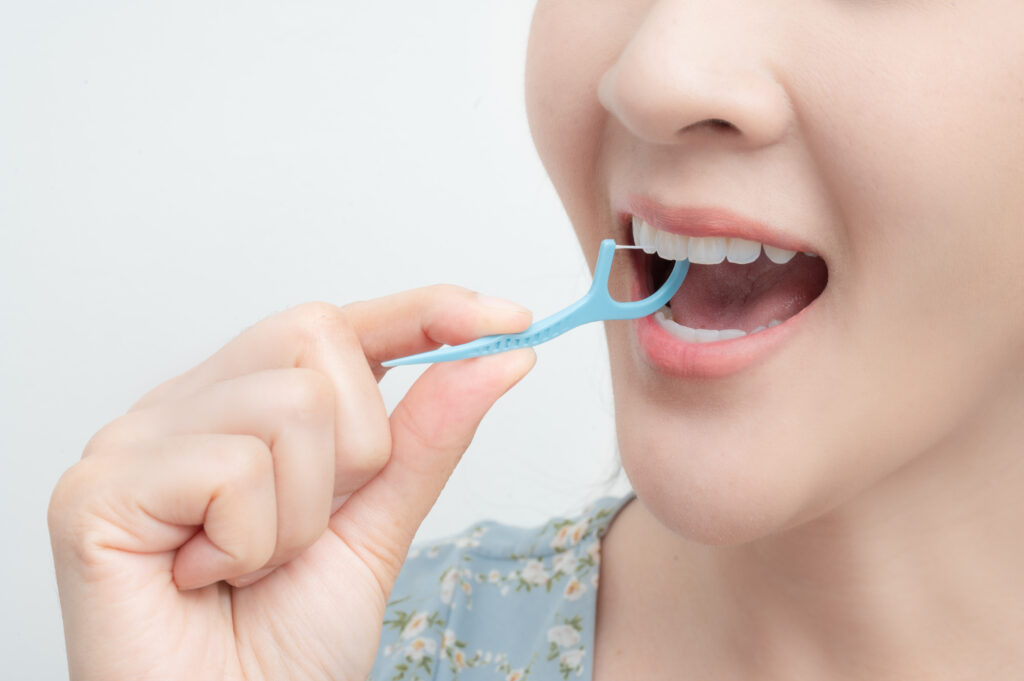
1. Traditional Dental Floss
Benefits: Effective plaque removal is achieved by the traditional dental floss, a slender warrior that skillfully infiltrates tight spaces, extracting debris and thwarting the formation of plaque. Despite its simplicity, floss proves to be highly effective, navigating the interdental maze where brushes fear to tread, ensuring a thorough oral hygiene routine.
Tips for Using: In the intricate choreography of oral care, floss takes center stage, gracefully weaving into the routine at least once a day to elevate dental hygiene beyond the reach of brushing alone. The dance begins with a delicate ballet of technique: gently slide the floss between teeth, forming a C-shape around each tooth, and glide upward to dislodge hidden debris. This meticulous routine ensures a thorough cleanse, turning the act of flossing into a daily performance for optimal oral health.
2. Floss Picks
Benefits: In the realm of oral care, floss picks are like agile acrobats, marrying convenience with portability to offer a mess-free alternative to traditional floss. Designed for easy handling, these dental tools cater to both the young and the elderly, turning flossing into an accessible ritual for all ages.
Tips for Using: Mastering the art of floss picks is a breeze. Insert the pick between teeth, gently maneuvering it to remove debris. A swift, efficient motion transforms flossing into a seamless act.
Interdental Brushes
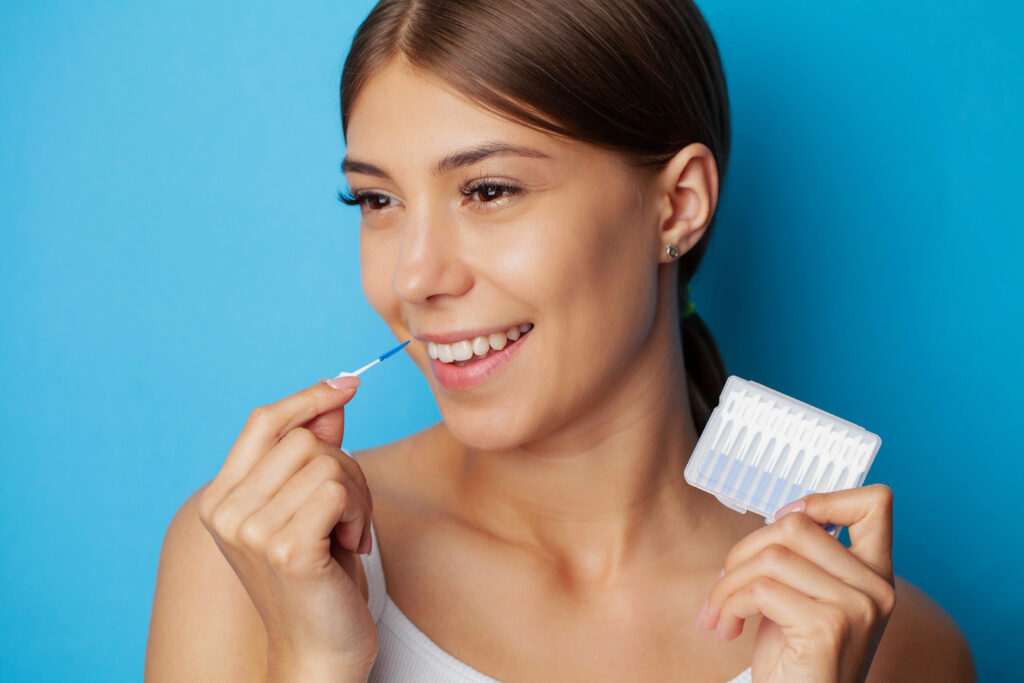
Interdental Brushes
Benefits: Interdental brushes with slender bristles provide a thorough cleanse by reaching deeper between teeth, surpassing the limitations of traditional floss. They are especially suitable for navigating braces or intricate dental work, ensuring no crevice is left untouched.
Tips for Using: When selecting an interdental brush, considering the size and shape of interdental spaces is essential for achieving a bespoke fit. Various sizes are available, catering to diverse dental landscapes. Another crucial factor is the bristle texture, which should be softer to avoid harm but still robust enough for effective debris extraction.
Tongue Cleaners
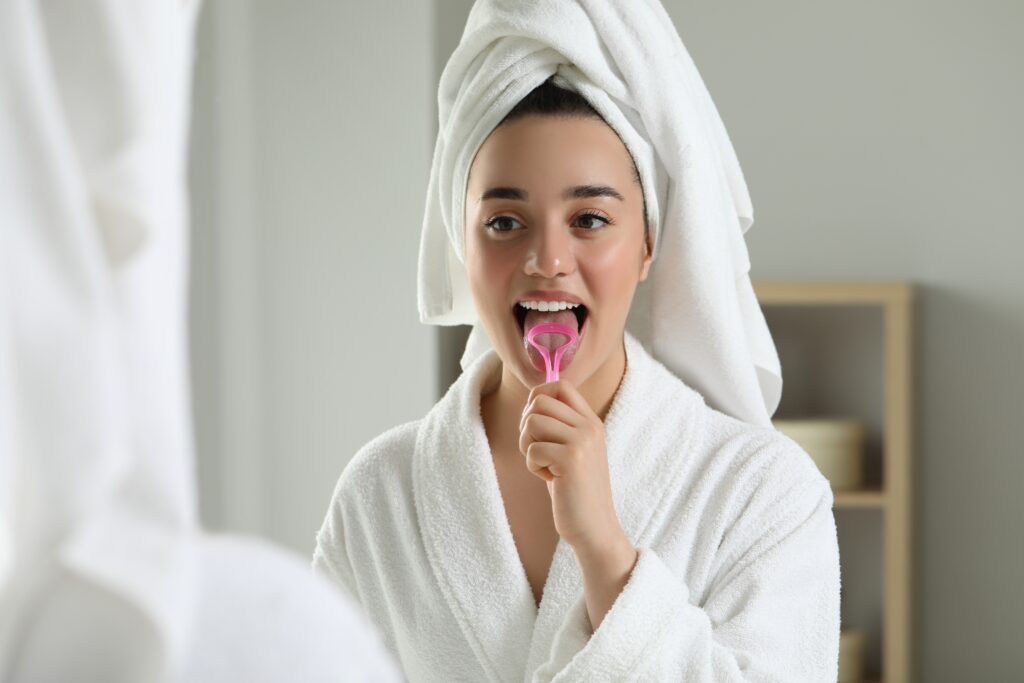
In the oral symphony, the tongue plays a pivotal role. Neglecting its hygiene not only compromises breath freshness but also leaves a microbial haven unchecked.
Benefits: Tongue scrapers and tongue brushes are essential tools for maintaining oral hygiene. Tongue scrapers gently traverse the surface of the tongue, dislodging bacterial colonies and leaving behind a revitalized palate. On the other hand, tongue brushes act like miniature brooms, effectively sweeping away debris and bacteria for a thorough cleanse. Both these tools contribute to creating an inhospitable environment for bad breath, making them unsung heroes for oral health.
Tips for Using: Tongue cleaning is an art. Employ either a tongue scraper or brush, gently moving from the back to the front, ensuring no area is overlooked. The ritual concludes with a rinse, leaving the palate refreshed.
Teeth Whiteners
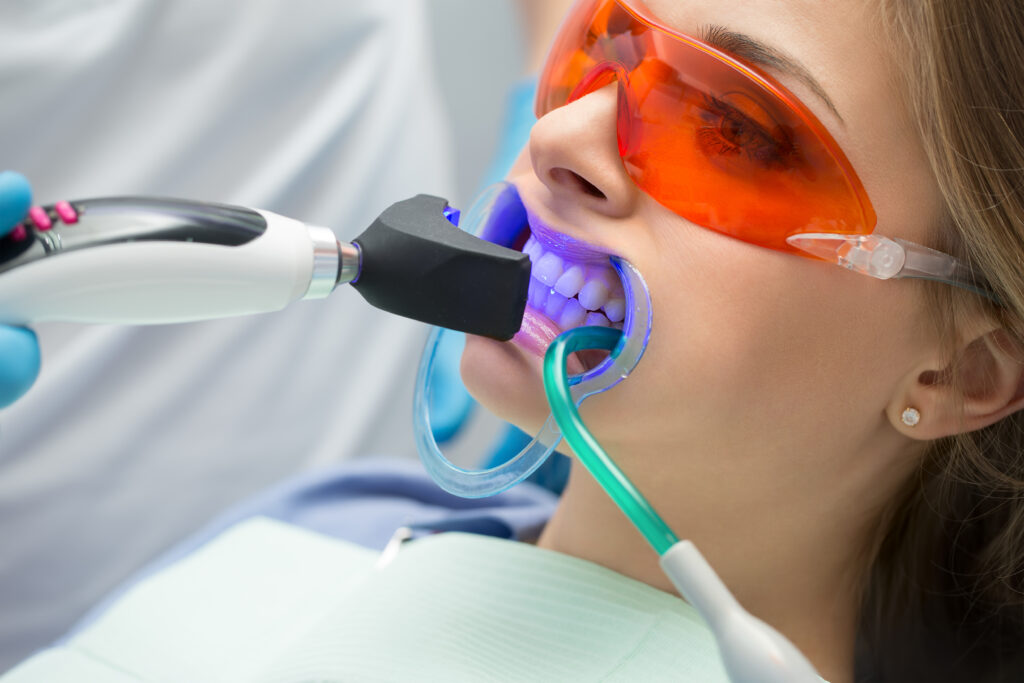
1. Teeth Whitening Strips
Benefits: Teeth whitening strips, adorned with peroxide or hydrogen peroxide, undergo a chemical reaction, bleaching away surface stains and unveiling a brighter smile.
Tips for Using: Embrace teeth whitening strips into your oral care finale, following the recommended usage guidelines. A consistent application over the specified duration unlocks the radiant potential.
2. Whitening Trays
Benefits: Whitening trays provide a customized fit as they are molded to the contours of your teeth, ensuring an even and thorough application of whitening agents. The snug fit of these trays also guarantees effective coverage, resulting in uniform whitening and minimizing the risk of uneven results.
Tips for Using: Mastering the art of whitening trays involves precision. Apply the gel sparingly, insert the tray, and let the transformative process unfold. Regular usage, as per instructions, ensures a dazzling outcome.
3. Whitening Pens
Benefits: Whitening pens, the pocket-sized allies, offer on-the-go convenience. Their portable nature transforms teeth whitening into a seamless, anytime ritual.
Tips for Using: Employ whitening pens judiciously. Apply the gel with precision, avoiding excess contact with gums. A disciplined approach, coupled with adherence to guidelines, guarantees a luminous outcome.
Denture Care Products
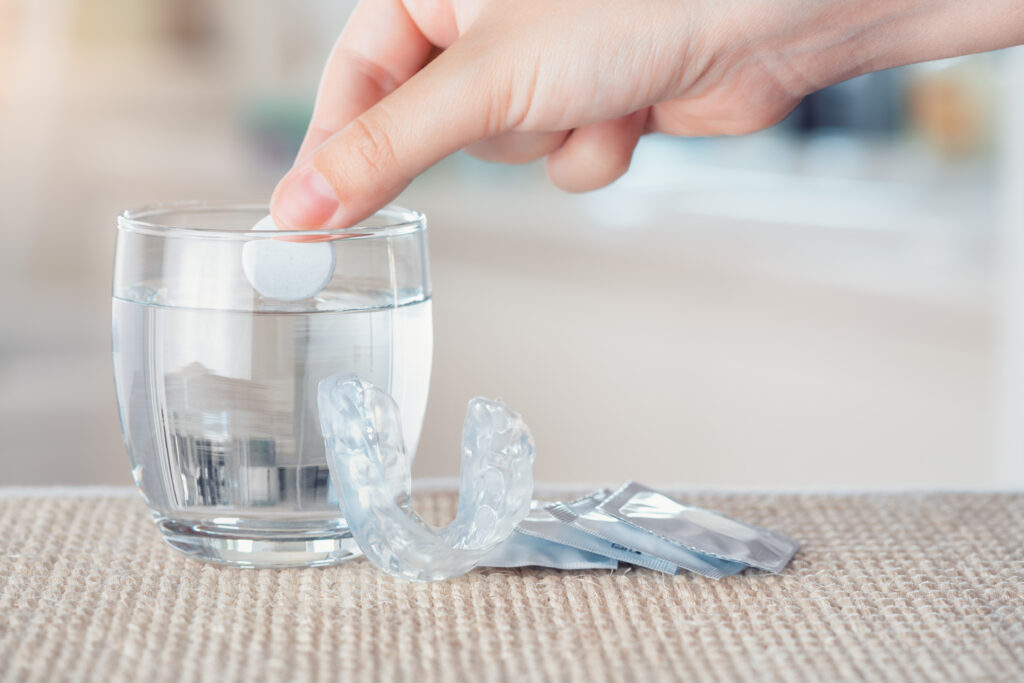
1. Denture Cleansers
Beneftis: There are different types of denture cleansers available to ensure optimal hygiene. Effervescent tablets or powders create a cleansing effervescence when dissolved, providing a thorough clean for removable dentures. Alternatively, liquid or gel solutions with antimicrobial agents effectively permeate the denture surface, eliminating bacterial colonies and preserving oral hygiene.
Tips for Using: A nightly ritual involves dissolving denture cleanser in warm water, allowing the dentures to soak. The morning heralds a refreshed set, ready for a new day.
2. Denture Adhesive Creams
Benefits: Denture adhesive creams provide a range of benefits. Not only do they offer improved stability, but they also enhance wearer confidence and comfort. By securely holding dentures in place during daily activities, these creams eliminate the uncertainty of displacement, ensuring enhanced stability throughout the day.
Tips for Using: Achieve optimal results with denture adhesive creams by applying a thin, even layer. Avoid excess application, as moderation ensures both efficacy and comfort.
Conclusion

As we conclude our exploration of oral care products, it’s clear that pursuing optimal oral health is a nuanced journey. Each product, playing a distinctive role in the symphony of oral care, caters to individual needs. From stalwart toothpaste to agile interdental brushes, this multifaceted array emphasizes the importance of regular oral care routines. Beyond mechanical motions, it’s a holistic commitment to oral well-being—a commitment transcending aesthetics, reaching into overall health. Armed with this knowledge, let’s navigate this oral odyssey with precision, ensuring each product contributes harmoniously to the sonata of a vibrant, healthy smile.
